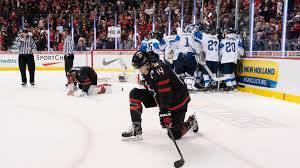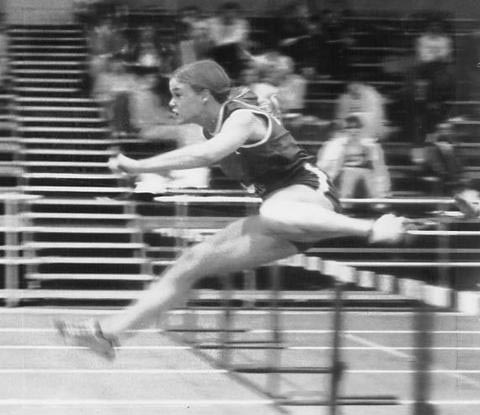
It was one of those breathless, white-knuckle moments. At the end of regulation time, the quarter-final, elimination game at the World Junior hockey championship was tied – Canada 1, Finland 1. Then, a couple of minutes into sudden-death overtime, a Finn rushing to catch a Canadian forward on a breakaway, slashed the Canadian’s hands from behind. The referees awarded a penalty shot, and Coach Tim Hunter chose Team Canada captain Maxime Comtois to take the shot.
“I was thinking (I have) to score,” Comtois told Canadian Press later, “and I didn’t. … It hurts.”
As most know, Comtois didn’t score. And minutes later, Finland’s Toni Utunen got a loose puck in Team Canada’s end and put it past goaltender Michael DiPietro to end the game. The Canadians would not repeat as World Junior champs. Indeed, they’d been eliminated.
But if he thought missing the penalty shot hurt, the 19-year-old Comtois would soon discover that was the least of his worries. Over the next 24 hours, as Canada’s juniors recovered from the emotional let-down at the tournament, social media trolls began firing shots at Comtois.
“The captain of the Canadian hockey shouldn’t … come up with such a pathetic attempt on an overtime penalty shot,” an Instagram-user complained. Another social media genius called Comtois an “absolute joke who did not deserve to be captain.”
Still another focused on Comtois’s francophone origins, calling him “a French f___.” I hasten to add that none of Comtois’s critics had the guts to identify themselves. So, why should we care about a bunch of profane loudmouths who hide behind the anonymity of the Internet to spew their racist epithets?
Because they deserve pushback from the rest of us.

First of all, consider these players – all very much like Comtois – have only recently come into the limelight. They’re 18 or 19 years old. And yes, some of them have already been spotted and signed up with the National Hockey League – both Canadian goalie DiPietro and sudden-death goal scorer Utenen from Finland have been chosen and may ultimately sign with the Vancouver Canucks, as Comtois may with the Anaheim Ducks. But all that attention, including fame and fortune, are just talk. They’re still teenagers.
And because they’re still young men, many of them have little maturity with an awful lot to learn – even about everyday life. In the early 1980s, I was commissioned to co-author a book about the Edmonton Oilers. That’s when players such as Mark Messier, Grant Fuhr, Kevin Lowe, Paul Coffey, Glenn Anderson and Wayne Gretzky, were fuzzy-faced rookies – they excelled on the ice, but at the same time were inexperienced in the ways of the world. Recognizing that shortcoming, the Edmonton Oilers’ executive, routinely brought in experts to teach the youngsters the basics.
For example, the Oilers retained an expert on drug and alcohol abuse. A nutritionist taught the youngsters how to prepare healthy meals. Another expert showed them how to write cheques, buy toiletries and even how to order and eat meals in a restaurant. They were kids suddenly thrust into the spotlight of professional sport, media attention and with lots of discretionary cash in their pockets. I’m not suggesting they were unintelligent, just uninitiated.

“I thought, ‘Who needs this stuff? We’ve been playing this game a hundred years and never needed psychology before,’” Oiler Dave Lumley complained originally. “’But I actually learned a lot.’”
Then, add to the equation the international stage. And if that doesn’t bring out both the best and worst in a young athlete, nothing will. Just like the Oilers of the 1980s, the Canadian Juniors get training in front of cameras too. They don’t automatically sound glib; they’re taught how to handle a question or two.
Still, all the media training and league protection cannot prepare young men and women for the pressure cooker of playing while the world watches. “Each game comes with its own unique challenges,” Canadian goalie Michael DiPietro said before the game against Finland. “We have to be ready to weather the storm.”

Sometimes the greatest storm brews in the players’ own backyard. I remember Diane Jones Konihowski, Canada’s best prospect for a gold medal in track and field at the 1976 Montreal Olympics. In perfect shape, prepared in every way imaginable to take on the world in the pentathlon, Jones Konihowski disappointed herself and fellow-Canadians when she didn’t get the gold.
“We had to be our best in front of the hometown crowds,” she said. “But it was like running or jumping with the entire nation on your back.”
I’d like to see the anonymous trolls, who’ve criticized Comtois and the rest of the Canadian Juniors, make their critical remarks out in the open, on an international platform with their names on their shirts. No doubt they’d look as foolish as they do hiding behind their anonymity on the Internet.